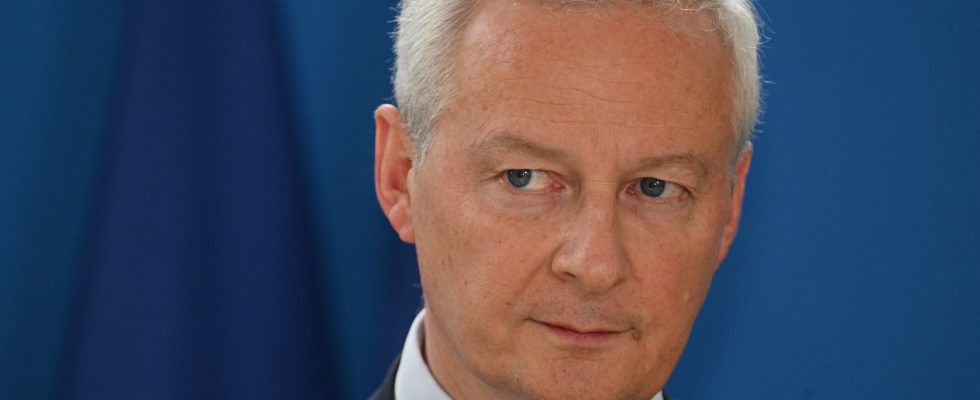Tax cuts are likely to be delayed. Despite the government’s promises, Economy Minister Bruno Le Maire announced that the pace of cuts would depend on France’s level of growth. “We want to continue in this direction of lowering taxes on households and businesses,” he said on Sunday July 9 on LCI, on the sidelines of the Economic Meetings of Aix-en-Provence. “Then there is a reality. We are fully aware that there is a slowdown in growth all over the world, especially in Europe.”
The ministry is therefore waiting to assess the growth prospects for 2023 and 2024 before deciding on the tax file. “At the end of September”, assured Bruno Le Maire, “we will see if this slowdown is also reflected […] In France. From there, I will make proposals to the President of the Republic on the rate of tax reduction.
1% growth in 2023
But the different scenarios are not very optimistic. The government expects a 1% increase in gross domestic product (GDP) in 2023, a forecast higher than that of INSEE (0.6%) and the Banque de France (0.7%). He then anticipates growth of 1.6% in 2024. As for the euro zone, it has not been spared by the recession. The GDP of all 20 countries using the single currency fell for two quarters in a row, with a contraction of 0.1% between March and January, as well as between October and December 2022.
This unfavorable situation comes at a time when the government has already planned several large-scale expenditures. The Ministry of the Economy, which is currently working on the 2024 budget presented to Parliament this fall, is struggling to balance the accounts. The increase in teachers’ salaries at the start of the school year is planned, but also various programming laws such as that of the army, or the revaluation of social benefits. However, Bercy has promised Brussels to return to below the 3% deficit mark in 2027. The European Union’s budgetary rules are restored in 2024 after several years of suspension due to Covid-19.
To keep its commitments, the executive enjoins its various ministries to achieve at least 5% savings. It has also planned a battery of measures, presented on the occasion of the Public Finance Conference: hunt for false sick leave, end of the Pinel system, reduction of training paid by the State for apprentices, end of energy shields… The government hopes to achieve 10 billion in savings by 2027.
These efforts are likely to be insufficient, hence the possible postponement of tax cuts. The contribution on the added value of companies (CVAE) is the first on the list. It is intended to disappear completely by 2024, which represents a loss of tax revenue of eight billion euros, distributed between 2023 and 2024. Regarding households, the government had also promised additional tax cuts for classes average, up to two billion euros by 2027.
Regarding the draft budget for 2024, which should provide billions of euros in savings to redress the drained public finances, Bruno Le Maire confirmed that he wanted to “switch from brown taxation to green taxation” in order to “accelerate the pace of decarbonization of our economy”. “We will increase, from the 2024 budget, taxation on all fossil fuels”, and a tax on plane tickets “is one of the options”.
